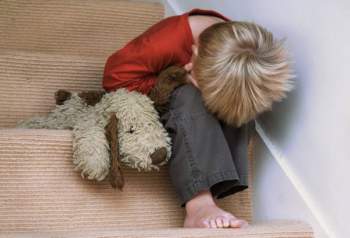
All You Need to Know About The Types of Abuse

Child abuse is much more common in the United States than most people would like to think. It is estimated that there are 1.25 million children who suffer from child abuse every year in the United States.
Child abuse takes on a variety of different forms, which all range in severity. There are forms of child abuse that leave physical wounds on a child's body, and the wounds may be very visible. Evidence of physical abuse may range from a tiny bruise to broken bones. There are also forms of abuse that leave no physical evidence, but leave emotional scars that are just as painful.
Every form of child abuse is detrimental to the health, well-being and development of a child. If an individual suspects that child abuse is occurring, they should report it to the local authorities in order to protect the child from a harmful environment. In many cases, reporting child abuse may not be helpful. However, in other cases reporting abuse may stop a child's death by abuse.
Emotional
Emotional child abuse is a form of abuse in which a child is exposed to behavior that is psychologically damaging or emotionally scarring. In many cases, emotional abuse is inflicted by the parents of a child or by someone who is close to the child. Emotional abuse may make a child feel that they are worthless or that they are not capable of effectively performing tasks that they are able to complete.
There are many different forms of emotional abuse, all with varying degrees of severity. However, they all affect the child's ability to develop normal psychological and social behavior. Emotional abuse is believed to occur much more frequently than it is reported. This is because emotional abuse provides the foundation for all of the other forms of abuse. Although this form of abuse does not leave any physical evidence, a child may carry the effects of emotional abuse for their entire life.
Psychological
Psychological abuse is often referred to as emotional abuse. It occurs when a child is subjected to behavior that is harmful to their emotional, psychological and social development. Psychological abuse may manifest in many different forms, including harassment, terrorizing, or ignoring.
A child who is suffering from psychological abuse may display a variety of changes to their behavior and their personality. Psychological abuse may cause a child to become extremely depressed and to withdraw from their friends and family.
The reason that psychological abuse occurs is not known. However, studies on the subject have found many influential characteristics that are related to psychological abuse. There are specific situations which cause the psychological abuse to increase.
If a parent experiences extreme stress due to one or multiple factors, then they may redirect these negative feelings towards their child. Psychological abuse is extremely detrimental to a child's development and it may have a long lasting negative effect on a child's social behavior.
Physical
Physical abuse is one of the most well-known and apparent forms of abuse. Physical abuse will often leave physical evidence on a child's body that is easy to discern. This form of abuse may range in severity from hitting and pushing to beating. It may also include biting, choking and burning.
Often, a child who suffers from physical abuse will try to deny the abuse that is inflicted in order to protect the perpetrator, who in most cases is one or both of the child's parents. The child may provide insufficient explanations for the markings on their body or continuously claim that they fell.
Physical abuse is extremely detrimental to a child's health and well-being. If an individual suspects that a child is being subjected to physical abuse they should report it to the local law enforcement agency immediately. Physical abuse can escalate quickly and become fatal.
Neglect
Neglect is the most common form of abuse in the United States. If a parent is depriving their child of the basic necessities that are required to live, such as food or clothing, then the parent is taking part in neglect. Neglect also occurs if a parent who is financially able to provide for their child is not providing their child with proper healthcare or dental care.
There are some common signs that a child is suffering from neglect. For example, if a child usually appears to be dirty or unwashed, then they may be suffering from neglect. Neglect can have an extremely negative effects on a child's health and development. If a child is not receiving the proper amount of food that they require, then they will suffer from malnutrition.
This will make them susceptible to disease and may lead to deformation. There are many other negative and detrimental effects of neglect, including both physical and emotional disorders.
Sexual
Sexual abuse occurs when an adult seeks to achieve sexual stimulation by making a child partake in any type of sexual activity. There are a wide variety of activities that are classified as sexual abuse. These activities include both looking at or touching a child's genitalia, as well as having a child look at or fondle another individual's genitalia.
The effects of sexual abuse are extremely traumatic and distressing to a child. The individual who is responsible for inflicting sexual abuse on a child is often a family member or someone who is close to the child. When a child is experiencing this abuse from someone that they love and trust, they become extremely torn between what they feel is wrong and not wanting to anger or upset the abuser. A child who is a victim of sexual abuse may find that it is difficult to trust an adult and may feel continuously nervous and anxious.
Abuse vs. Discipline
Many people are unclear on the difference between abuse and discipline and fear that disciplining their child will be construed as abuse. There are many important differences that separate abuse and discipline.
Primarily, the intention of and the severity the actions. While abuse is carried out with cruel and malicious intent, discipline is inflicted in order to teach a child right from wrong and allow them to develop proper social behavior. A parent resorts to discipline because they love their child and they want to teach them proper behavior and change unacceptable behavior.
Child abuse is usually not in direct response to anything that the child has done and will usually result in severe physical and emotional trauma. Discipline is only carried out occasionally and in direct relation to a negative behavior of the child. Discipline is not intended to harm or injure the child. It is acceptable for a parent to discipline their child, as long as they understand the essential differences between neglect and abuse.
Parental Drug Abuse
State laws recognize parental drug abuse as a legitimate form of child abuse. Parental drug abuse can be extremely detrimental to the health, safety, and well-being of a child. Parental drug abuse may occur while a mother is pregnant with a child, which may have severe negative consequences on the child's physical, mental, and emotional development.
Often, children who are exposed to drugs before they are born suffer from physical abnormalities and mental disabilities. Many states have developed laws that hold mothers legally accountable for subjecting their child to this type of harm.
Parental drug abuse may also affect a child after they are born. A parent who is inebriated due to the consumption of drugs is unable to effectively care for their child. A child who is living in an environment in which their parents are constantly under the influence of drugs is more likely to be exposed to physical abuse, sexual abuse, psychological abuse, and neglect. Many states have modified their perception on drug exposure not only to include parental consumption of drugs, but a variety of other activities as well.
Abandonment
Many parents are unprepared for the responsibilities and the stresses of raising a child. Abandonment can have extremely negative consequences on a child's health and well-being, as well as on their emotional and psychological development. Child abandonment often results in child exploitation, and if a child is unable to find access to basic necessities, then the child may die.
Different states throughout the country have established various definitions of child abandonment. They have also instituted different punishments for the act of abandoning a child. Many states have developed laws and procedures in order to help combat child abandonment.


















